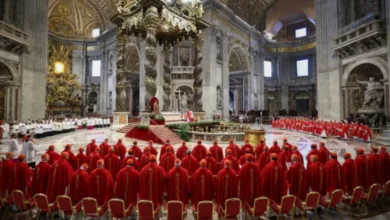Unfolding Political Drama In Rivers State: Return Of Sugar-Coated Democracy Or A Descent Into Democrazy?

President Bola Ahmed Tinubu, the Substantive Minister of Petroleum Resources
By Ifeanyi Izeze
In less than three years after the long-awaited Petroleum Industry Act (PIA) came into force — a law that took over two decades of debate to pass — the Federal Government is already moving to amend it. Even more troubling is the reported plan to sell down the Federation’s stakes in some of our most profitable upstream oil and gas joint ventures (JVs).
On paper, the government frames this as a revenue-raising measure. In reality, it risks becoming a textbook case of robbing Peter to pay Paul — sacrificing long-term national stability for short-term fiscal relief.
If it is true that the Federal Government is really set to amend the embryonic statutory framework for the nation’s oil and gas sector, the Petroleum Industry Act (PIA) and also plans to sell off the Federation’s equity in the existing Upstream Oil and Gas Joint Ventures, then there’s really a cause for serious concern.
Without mincing words, the line between good intentions and hidden agenda by those in government is so thin in this country that you can easily or rather rightly assume it does not really exit in the first instance.
Is it actually for our collective national interests or individual-centred interests that government functionaries in this administration cannot resist the temptation to pursue short-term gains at the expense of Nigeria’s national interest and long-term national stability?
Political Stakes: Sovereignty and Trust
Oil is not just another commodity in Nigeria; it is the backbone of our economy and a pillar of our sovereignty. Reducing the Federation’s equity in high-performing JVs like NNPCL/Renaissance Africa Energy, NNPCL/Oando, and NNPCL/Seplat means ceding significant control over production, pricing, and reinvestment decisions to private — and in some cases foreign — interests.
The secrecy alleged around these transactions, coupled with the fact that the Ministry of Finance, rather than the Ministry of Petroleum, is driving the process, raises legitimate questions about intent. Without broad consultation, the public is left to assume the worst: that this is an insider-driven deal benefiting a few well-connected individuals.
Politically, this is a dangerous narrative for any administration. It hands the opposition a ready-made talking point — that the government is “selling the family silver” — and risks alienating oil-producing states already agitating for greater resource control.
Economic Risks: Shrinking the Lifeline
The targeted JVs generate over 60% of Nigeria’s most reliable oil revenue and foreign exchange inflows. Selling down equity means a smaller share of profits and dividends for the Federation, at a time when our fiscal position is already fragile.
This is not just about numbers on a balance sheet. It’s about energy security. With reduced state control, Nigeria could lose the ability to influence production volumes and safeguard domestic supply in times of crisis. Once these assets are sold, they will be difficult — and costly — to recover.
The precedent is equally worrying. If we normalise selling strategic assets to plug budget holes, what stops future administrations from further dismantling the state’s economic base?
Just look at the Joint Ventures in which the Federation’s equity is being sold as widely reported in the media:
First is the NNPCL/Renaissance Africa Energy Company Joint Venture (RAEC JV): There is a plan, as alleged, to sell 25 percent of the Nigerian Federation’s equity in RAEC JV. Federation’s equity in the RAEC JV is 55 percent. NNPC represents the Federation in the JV, holding the 55 percent equity in trust. So, selling 25 percent out of 55 percent will leave the Federation with only 30 percent equity in the joint venture. The plan as alleged is to sell this 25 percent to Sterling Global Oil Company. This is an Indian oil company.
Also, there is a plan to sell 25 percent of the Nigerian Federation’s equity in the NNPCL/Oando Joint Venture. Federation’s equity in the Oando JV is 60 percent. NNPC represents the Federation in the JV, holding the 60 percent equity in trust. So, selling 25 percent out of 60 percent will leave the Federation with only 35 percent equity in the JV. The plan as alleged is to sell this 25 percent to Oando Oil Company. Oando is a Nigerian company led by Wale Tinubu.
Another joint operation slated for the proposed load shedding is the NNPCL/Seplat Energy Producing Nigeria Unlimited Joint Venture (SEPNU JV) as reported. There is a plan to sell 35 percent of the Nigerian Federation’s equity in SEPNU JV. Federation’s equity in the SEPNU JV is 60 percent. NNPC represents the Federation in the JV, holding the 60 percent equity in trust. So, selling 35 percent out of 60 percent will leave the Federation with only 25 percent equity in the JV. As alleged, the plan is to sell this 35 percent to a company wholly owned by another private individual.
As already said by those who know better, there are scores of reasons why the equities in these strategic national assets should not even be considered to be put up for sale.
First is the ultimate loss of control of strategic national assets in the nation’s oil industry. Handing control of these existing joint ventures to a few private individuals takes away sovereign ability of the Nigerian state to control its national economic affairs.
Legal and Structural Concerns: Undermining the PIA
The PIA was designed to bring clarity, stability, and investor confidence to a sector long plagued by uncertainty. Amending key sections — including those governing NNPCL’s role as concessionaire and trustee of JV equity — so soon after enactment sends the opposite signal: that Nigeria’s policy environment is unstable and subject to political expediency.
Such instability deters reputable investors, who value predictable rules over sweetheart deals. It also undermines the credibility of the very reforms the PIA was meant to enshrine.
The proposed amendment of sections 8, 9, 53, 63, 64, and 85 of the PIA should not only be regarded as disconcerting but as an outright provocation by those in government against the rest of us as it is not and can never be in the best interest of the Nigerian people. The amendment is planned with personal interest, and so it will destroy the stability of the industry and discourage investment.
From my experiences in the nation’s oil industry, it is very clear that the amendment is designed to hand over the nation’s oil and gas resources in deep and ultra-deep arenas to the hands of a few rich private individuals who are within the corridors of power.
The Bigger Picture
This is not just a policy choice; it is a defining moment for Nigeria’s political economy. The decision will shape how we are perceived by our citizens, our investors, and future generations. If the government proceeds without transparency, broad consultation, and clear safeguards for national interest, it risks being remembered not for reform but for presiding over the quiet auction of Nigeria’s crown jewels.
The call to action is clear: Nigerians must demand full disclosure of the terms, beneficiaries, and long-term implications of any JV equity sales. Strategic assets should not be traded away behind closed doors. Once gone, they are gone for good — and the cost will be borne not by today’s decision-makers, but by the generations that follow.
Izeze writes from Abuja and can be reached via iizeze@yahoo.com or +2348033043009.
Post Views: 99





